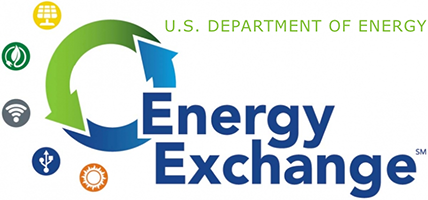Pittsburgh, PA

Many water and wastewater treatment plants (WWTPs) use aging equipment that's beyond its anticipated useful life. Water and wastewater treatment plants must continuously operate, so scheduling outages for maintenance or repairs is a challenge. Because WWTPs run 24/7, power is a critical component to their success. In addition, an important component of a site's water management plan is identifying sources of alternative water to offset the use of freshwater from surface and groundwater sources. Several different wastewater treatment processes and technologies are available. Come learn how various federal entities are implementing shovel-ready solutions to all the challenges being encountered in today's WWTP's operations.
Instructors
Chris Woodruff, Energy Manager; Energy and Utility Branch Operation and Maintenance Division, Department of Defense, U.S. Army - Fort Irwin Read Bio
Chris Woodruff is the Energy Manager for the Directorate of Public Works, Fort Irwin. Throughout his duties, Chris has been instrumental in overseeing the implementation of numerous energy and utility related projects at the garrison. As project manager and before as Water Resources Manager, Chris performed Contract Officer Representative (COR) responsibilities for the water and wastewater privatization contract. Known as a subject matter expert Water Resource Manager, Chris's involvement lead in the successful completion of the $100 million water treatment plant. In his pastime, Chris enjoys international travel.
Saul Kinter, Program Manager for Business Development and for Energy Initiatives, DC Water Read Bio
Saul Kinter is the Program Manager for Business Development and for Energy Initiatives at DC Water. He holds a BSE degree from Princeton University, where his thesis described a new model for distributing surface water according to the Texas water rights system and has published or spoken on a wide-ranging set of topics, including climate variability, ocean-atmosphere gas transfer, the value of water conservation, and wastewater thermal energy. At DC Water, he developed the Bloom biosolids marketing program, and is currently responsible for developing new revenue streams, including from renewable energy.
Sean Wheatley, President, American Water - Military Services Group Read Bio
Dr. Wheatley currently serves as the President of American Water's Military Services Group. He has spent nearly 40 years in the water and wastewater industry, including the role of Instructor at the U.S. Army Water Treatment School. In his current role, Dr. Wheatly is responsible for the strategic direction and oversight of the Military Services Group. Before his current role, he served as Vice President of Operations, responsible for daily operations, capital construction activities, health and safety, environmental program management, and technical support of our 18 military installations across the United States. Dr. Wheatley is a proud veteran, serving nine years in the U.S. Army, with a tour in Desert Storm. He holds several degrees in Business and Leadership.
Learning Objectives
Upon completion of this course, attendees will be able to:
- Identify four crucial strategies to achieve net-zero carbon along with energy sufficiency in the water sector, including (1) improvement in process energy efficiency; (2) maximizing on-site renewable capacities and biogas upgrading; (3) harvesting energy from treated effluent; (4) a new paradigm for decentralized water-energy supply units;
- Recognize lessons learned from a case study covering project identification through concept development focusing on proper project phasing to project programing;
- Select ways to identify sources of alternative water to offset the use of freshwater from the surface and groundwater sources in the site's water management plan;
- Identify lessons learned regarding different wastewater treatment processes and technologies that are available to the owner.









